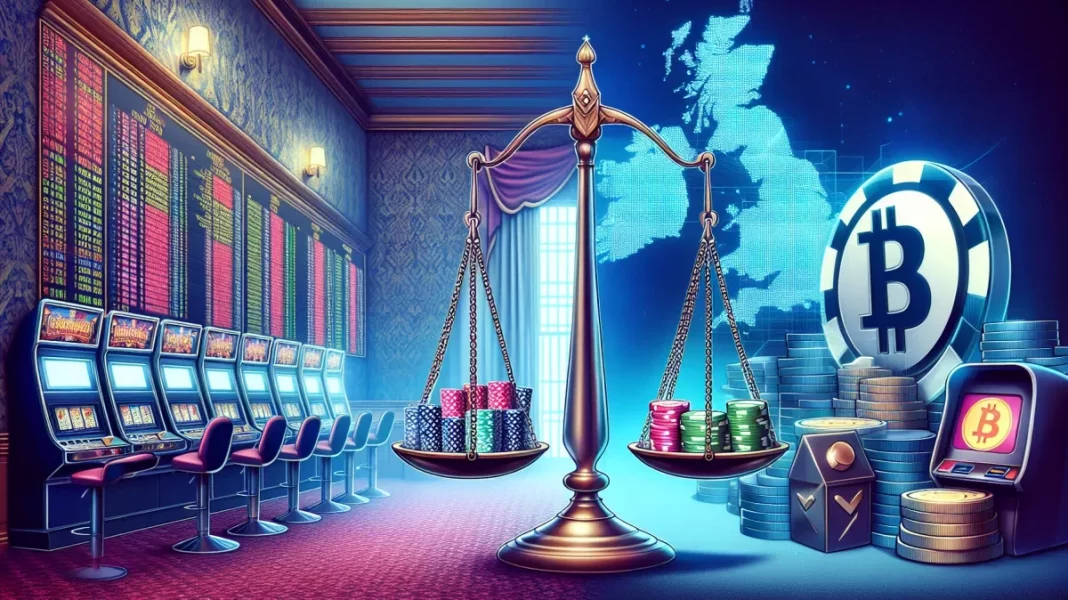In a world where technology and innovation are setting the pace, ‘Metaverse’ has quickly graduated from buzzword to a phenomenon that’s shaping a new kind of universe – a purely virtual one. Not only is it influencing the way we communicate, work, learn, and engage in recreations such as music, cinema, and sports events, but Metaverse is radically transforming the face of gambling as we know it. And as the headline suggests, Bitcoin – the biggest name in cryptocurrency – is taking center stage in this metamorphosis.
Metaverse Casinos: A Modern Twist on Traditional Gambling
For those in the gambling industry, the Metaverse offers a tantalising opportunity to provide a much more immersive and interactive gambling experience than was previously possible. By opening the gates to a virtual marketplace, gamblers can now delve into a realm that allows real-time interaction with both the environment and other participants from all around the globe.
Imagine walking through a virtual replica of Las Vegas, popping into various casinos managed by some of the biggest brands in the industry. Now imagine being able to gamble with real money, winning virtual goods with real-world monetary value – all while immersed in a 3D virtual reality experience. It’s a tantalising prospect.
In response to this, startups like Decentraland, Cryptovoxels, and Somnium Space have introduced Metaverse platforms, where developers, businesses and individuals can acquire virtual plots of land and build their unique spaces. And casino operators have been quick to jump onto this new trend.
But amidst this virtual goldrush, there lies one critical challenge – finding a common currency that can facilitate seamless transactions within a global virtual marketplace that transcends geographical boundaries. That’s where Bitcoin comes into play.
Bitcoin: The Metaverse’s Ideal Gambling Currency
Bitcoin has long been recognised as the frontrunner in cryptocurrencies. With its decentralised blockchain-based technology, it offers a range of benefits that make it the perfect currency for the Metaverse – a realm that’s as borderless as Bitcoin itself.
Firstly, its decentralised nature means it operates irrespective of central banks and governments. This allows for smooth transactions across geographical borders, eliminating currency conversion complications in an environment where audiences are scattered worldwide.
Secondly, Bitcoin provides a level of transparency that’s much needed in transactions, especially those involving gambling. Each Bitcoin transaction is recorded on a public ledger known as the blockchain. This public record of all transactions ensures that any fraudulent activity or disputed transactions can be quickly resolved.
Moreover, the inherent privacy factor associated with Bitcoin transactions is very attractive for gamblers. While transactions are transparent, the identities of those involved in transactions are safeguarded. This provides a layer of protection for gamblers who want to maintain their privacy owing to the social stigma often associated with gambling.
Ultimately, Bitcoin’s low transaction fees, quick transaction processing times, and secure, private, and transparent nature make it the perfect contender for the main currency in the virtual world of Metaverse casinos.
Drawing Line between Reality and Virtual: Legal Implications
Despite these advantages, there exist several regulatory and legal hurdles that need to be navigated carefully. Just as ‘real-world’ gambling is heavily regulated due to its potential for misuse, it’s vital that adequate measures are put in place within the Metaverse.
The anonymity provided by Bitcoin might protect users from social stigma, but it also conceals the identities of those who might indulge in illicit gambling activities. Regulating bodies around the world are, therefore, keeping a close eye on these developments to ensure that any potential for misuse is swiftly checked. Therefore, it is incumbent on Metaverse developers and casino operators to self-regulate proactively and adopt practices that prevent the potential misuse of these platforms.
Conclusion: A New Frontier in Gambling
The integration of Bitcoin into the world of the Metaverse has opened an extraordinary new frontier in gambling. The fusion of these two cutting-edge technologies can empower a more immersive, interactive, borderless, secure, and transparent gambling experience than ever before, revolutionising the industry as we know it.
As adaptations keep pouring and technology continues to advance, only time will tell how Bitcoin will continue to shape the world of Metaverse gambling. Likewise, how Metaverse developers, regulators, and society at large respond and adapt to these changes will determine the trajectory of this exciting new chapter in the history of gambling.
Always remember, however, that with any form of gambling comes great responsibility. So whether you’re betting in the physical world or within the endless opportunities of the Metaverse, do so wisely and responsibly.
Sources:
1) Cheng, E. (2019). Explaining the ‘metaverse’: What is this science fiction concept Facebook is talking about? CNBC.
2) Nakamura, Y. (2021). Why Facebook Changing Its Name to Meta Doesn’t Change Anything. Bloomberg.
3) Cao, L. (2021). What is Decentraland (MANA)? A guide to the virtual world platform. CoinMarketCap.
4) Brown, M. (2021). US sports betting metaverse could be worth $2.5bn. Gamesindustry.biz.
5) Toth, A. (2021). Metaverse Gambling: The Next Big Trend in Online Gaming. Finance Magnates.
6) Pymnts. (2021). The Legal Challenges of Cross-Border Bitcoin Transactions. Pymnts.com.
7) Cryptopolitan. (2020). Can Bitcoin Casinos Be Trusted? Cryptopolitan.



